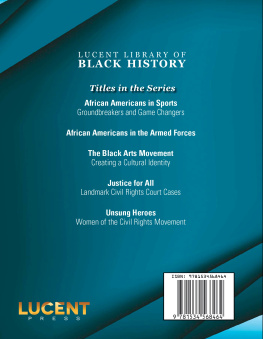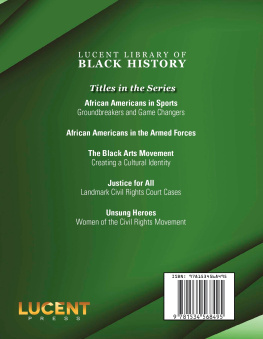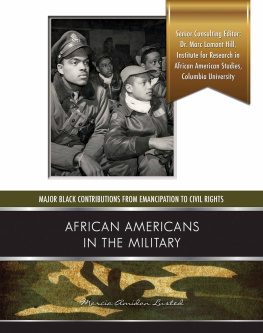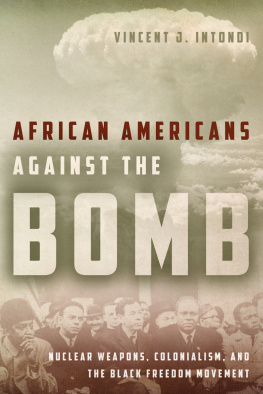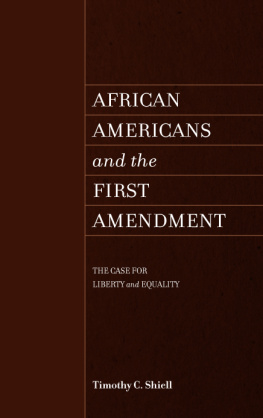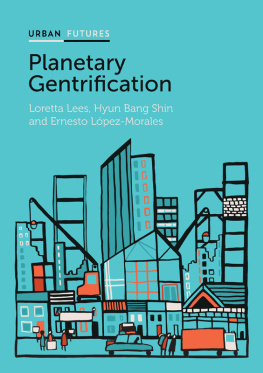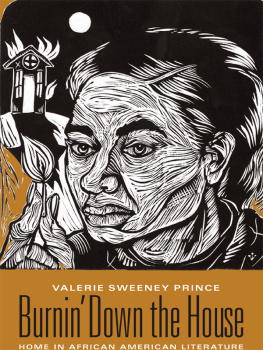AFRICAN AMERICANS AND GENTRIFICATION IN WASHINGTON, D.C.
Urban Anthropology
Series Editors: Italo Pardo and Giuliana B. Prato,
University of Kent, UK
The first series of its kind to be established by a major academic press, Urban Anthropology publishes ethnographically global, original, empirically-based works of high analytical and theoretical calibre, all of which are peer reviewed.
The series publishes sole-authored and edited manuscripts that address key issues that have comparative value in the current international academic and political debates. These issues include, but are by no means limited to: the methodological challenges posed by urban field research; the role of kinship, family and social relations; the gap between citizenship and governance; the legitimacy of policy and the law; the relationships between the legal, the semilegal and the illegal in the economic and political fields; the role of conflicting moralities across the social, cultural and political spectra; the problems raised by internal and international migration; the informal sector of the economy and its complex relationships with the formal sector and the law; the impact of the process of globalization on the local level and the significance of local dynamics in the global context; urban development, sustainability and global restructuring; conflict and competition within and between cities.
Other titles in the series
Anthropology in the City
Methodology and Theory
Edited by Italo Pardo and Giuliana B. Prato
ISBN 9781409408338
The New Environmentalism?
Civil Society and Corruption in the Enlarged EU
Davide Torsello
ISBN 9781409423645
Seeing Cities Change
Local Culture and Class
Jerome Krase
ISBN 9781409428787
African Americans and Gentrification in Washington, D.C.
Race, Class and Social Justice in the Nations Capital
SABIYHA PRINCE
Independent Scholar
First published 2014 by Ashgate Publishing
Published 2016 by Routledge
2 Park Square, Milton Park, Abingdon, Oxon OX14 4RN
711 Third Avenue, New York, NY 10017, USA
Routledge is an imprint of the Taylor & Francis Group, an informa business
Copyright 2014 Sabiyha Prince.
Sabiyha Prince has asserted her right under the Copyright, Designs and Patents Act, 1988, to be identified as the author of this work.
All rights reserved. No part of this book may be reprinted or reproduced or utilised in any form or by any electronic, mechanical, or other means, now known or hereafter invented, including photocopying and recording, or in any information storage or retrieval system, without permission in writing from the publishers.
Notice:
Product or corporate names may be trademarks or registered trademarks, and are used only for identification and explanation without intent to infringe.
British Library Cataloguing in Publication Data
A catalogue record for this book is available from the British Library
The Library of Congress has cataloged the printed edition as follows:
Prince, Sabiyha, 1959
African Americans and gentrification in Washington, D.C. : race, class and social
justice in the nations capital / by Sabiyha Prince.
pages cm. (Urban anthropology)
Includes bibliographical references and index.
ISBN 9781409446125 (hardback : alk. paper) ISBN 9781409446132
(ebook) ISBN 9781472403162 (epub) 1. African Americans Washington
(D.C.) Social conditions. 2. Washington (D.C.) Race relations. 3. Washington
(D.C.) Social conditions. 4. Gentrification Washington (D.C.)
I. Title.
E185.93.D6P75 2013
305.8009753dc23 2013020852
ISBN 978-1-409-44612-5 (hbk)
Dedicated to the memories of Lee Folia
Verina Prince and Madeline Elizabeth Eversley
Contents
Acknowledgments
This book stems from the collective efforts of numerous individuals. The work may not be the perfection its years to completion merit but any shortcomings on these pages should, in no way, reflect negatively upon the stellar support I received from so many along the way.
I begin by acknowledging the help of my former colleagues at American University. I particularly want to thank Rachel Watkins and Brett Williamstwo extraordinary scholars and friends who read and edited my work during the early stages of its writing and lent other, pivotal forms of support throughout this demanding process. I also want to thank the dozens of people who took action in response to my failed tenure bid. Your commitment to confront unfairness was an important source of encouragement for me. My spirits were bolstered by your concern and the instances where so many of you campaigned for change on this matter by organizing, Facebooking, writing letters and, even, meeting with those persons who were responsible for this disappointing decision.
My work has also keenly benefitted from the input of academics at other institutions. Anthropologists Judith King-Calnek, Arlene Davila, Lesley Gill, Faye Harrison, John Hartigan, Jane Henrici, John Jackson, Elgin Klugh, Karla Slocum, and Alaka Wali all fit this description as do my interdisciplinary cohorts Michelle Boyd, Carl and Caleen Jennings, Marie-Elena John-Smith, and Lorna Skyers who helped in a variety of capacities. Journalist-friends Julia Chance, Keith Harriston, and Geraldine Moriba-Meadows provided important supports at key points over the years. I also owe particular debts of gratitude to friend and historian-extraordinaire, Yevette Richards Jordan and Professor Leith Mullings who remains my original anthropological mentor and a continuous inspiration. Conversations with local scholars C.R. Gibbs and Mayra McQuirter assisted with the completion of this project as did a bevy of current and former graduate students worked as both teaching and research assistants during my 12-year stint at American University. These include Dr. Michelle Carnes, Dr. Michelle Chatman, Dr. Ariana Curtis, Sean Furmage, Mahri Irvine, Nikki Lane, Rafael Lainez, Barbra Lukunka, Julie Maldonando, Ashante Reese, Dr. Malinda Rhone, Kalfani Ture, and Dr. Arvenita Washington-Cherry. I also owe a great debt of gratitude to Stacey Terrell, Erika Crable Amanda Yerby, and Amanda Huron for their assistance with various aspects of this project as well as undergraduate students in D.C. inequality class and various independent studies that helped me discuss issues and work out frameworks. This latter description includes Emily Conrad, Ava Page, Jesse Sarnoff, and Drew Sunderland. Finally, Nina Shapiro-Perl took time out of her schedule to advise me on videotaping interviews with seniors in Washington, D.C. and it is because of her efforts that I was able to produce these visual representations that will stand the test of time.
Ingrid Drake was very generous with sharing interviews she transcribed as a part of the Ivy City Oral History Project. I would like to thank her and all the women and men who shared their stories for this important community-based effort. Patrick Crowley, Fred Carter, Zein El-Amine, Netfa Freeman, Amy Hendrick, Linda Leaks, Dominic Moulden, Parisa Nouruzi, Gertrude Saleh, and Anu Yadav offered key insights and opportunities leading up to this book being completed.
Wayson Jones provided much-needed support with editing and the qualitative research consultancy Dr. Asher Beckwitt was indispensable throughout the final phases of this project. The work of external reviewers was also central. These readers feedback exposed me to new bodies of literature and helped strengthen the final draft of this manuscript.




